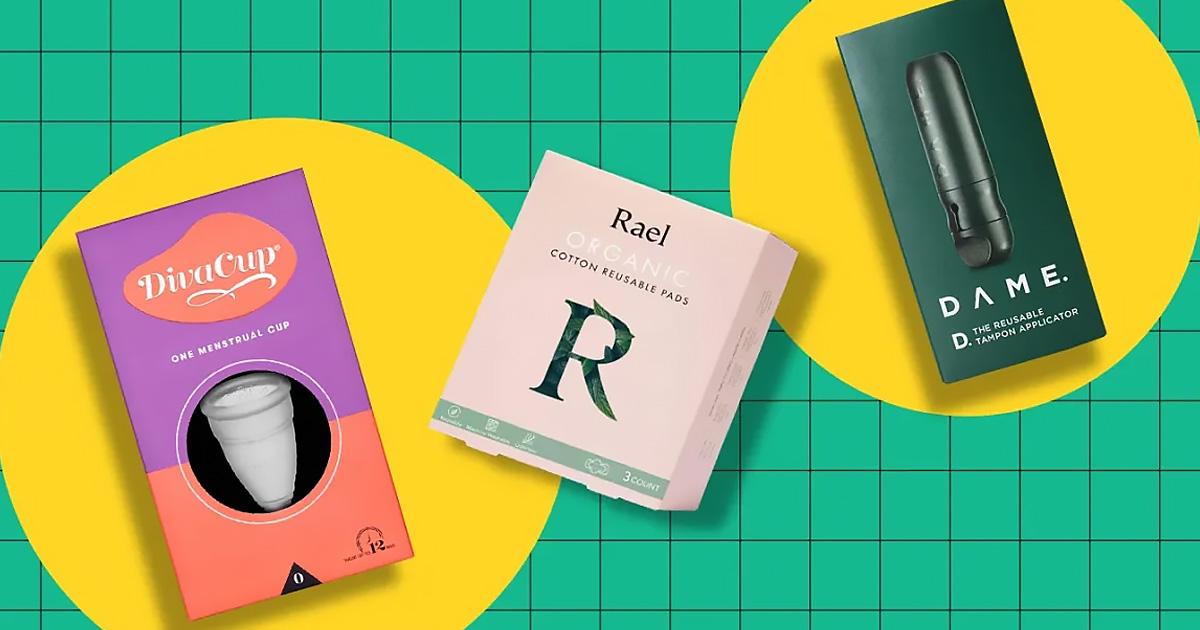Sustainable Pads – Your Eco-Friendly Menstrual Solution for a Greener Future

Today, we’re all becoming more aware of how our actions impact the environment. As a result of this awareness, we are choosing to live more sustainably. What we do with our periods is one area where this has a significant impact. Traditional period products can be harmful to the planet, but there’s a new solution that’s gaining popularity: sustainable pads. These pads don’t just help us during our periods; they also help protect the environment.
In this article, we’ll explore eco-friendly pads and why they’re a great choice, and we’ll introduce you to some brands leading the way in making eco-friendly period products.
The Problem with Regular Pads
You might be used to using regular pads, but did you know they’re not good for the environment? They’re made from stuff that stays in the environment for long and fills garbage dumps. This is not good for Earth. But there’s good news – there are better pads called sustainable pads that solve this problem.
Eco-friendly sanitary pads are like Earth-friendly heroes. They’re made from materials that break down easily, so they don’t hang around in garbage dumps. Instead, they go back to nature without causing harm. So, if you switch to environmentally friendly pads, you’re taking care of yourself during your period and being a friend to the planet. A minor change could have a significant impact.
What Are Sustainable Pads?
Sustainable pads are a specific kind of menstrual product that is environmentally friendly. Instead of using materials that stick around for a long time, these eco-friendly pads are made from organic cotton, bamboo, and other natural materials. This means they break down and disappear much faster after they’re thrown away.
Why Choose Sustainable Pads?
Here are some reasons why you should be using eco-friendly sanitary pads:
- Helping the Planet: Using environmentally friendly pads reduces waste in landfills. This is good for the Earth and all the animals who live on it.
- Less Harmful Chemicals: Regular pads can have chemicals that aren’t great for your body. Sustainable pads are often made without these harmful substances, so they’re gentler on you.
- Saving Money: Even though they cost more initially, eco-friendly sanitary pads that are better for the environment can save you money in the long run. You won’t have to buy new pads every month anymore.
- Feeling Empowered: Choosing sustainable pads means making a positive environmental choice. It’s a way to take care of both yourself and the world.
Types of Sustainable Pads
Here are the types of eco-friendly pads:
- Organic Cotton Pads: These eco-friendly pads are made from cotton grown without chemicals, which is better for your body and the environment.
- Bamboo Fiber Pads: Bamboo is a fast-growing plant used to make absorbent and biodegradable pads.
- Plant-Based Fiber Pads: Some sustainable pads are made from materials like corn or sugarcane, which are better for the planet.
- Reusable Cloth Pads: These eco-friendly sanitary pads can be washed and used again, which reduces waste and saves money.
- Menstrual Underwear: Underwear with special layers can replace pads altogether, making them a convenient and eco-friendly option.
- Menstrual Cups: These aren’t pads; they collect menstrual fluid and can be used many times, reducing waste.
Prominent Eco-Friendly Pad Brands Leading the Way
Here are some of the popular brands of sustainable pads you can try:
- Aisle: Formerly known as Lunapads, this brand offers a variety of reusable cloth pads and period underwear.
- Organicup: Known for its menstrual cups, Organicup provides a sustainable and easy-to-use option.
- Thinx: Thinx specializes in underwear that can be used during your period, cutting down on pad waste.
- Eco Femme: This brand offers organic cotton pads and supports women in India, positively impacting the environment and society.
- Charlie Banana: They have reusable pads and other eco-friendly products, showing their commitment to a greener world.
- Saalt: Saalt is known for its menstrual cups and organic cotton pads, giving you more choices for a sustainable period.
- Bambody: Their bamboo-based underwear is absorbent and comfortable, perfect for an eco-friendly period.
- Hesta Organic: Focusing on organic cotton, bamboo underwear, and pads, Hesta Organic is making periods healthier for you and the Earth.
- GladRags: With cloth pads and cups, GladRags is dedicated to making periods better for the environment.
- DivaCup: Their menstrual cups offer a reusable and sustainable option gaining popularity.
Are Reusable Pads Better for the Environment?
Using reusable pads like sustainable pads is a great idea for our planet. When you use them, you’re doing something super important – making less garbage. This is like giving the Earth a big hug because there won’t be as much stuff that needs to be thrown away. Reusable pads are like little superheroes that save the day by making less mess and helping to keep the planet clean.
Switching to these special pads is like making a small but powerful choice. It’s like saying, “Hey, Earth, I care about you!” And guess what? Every small choice adds up to a big change. So, by picking reusable pads, you’re not only looking after yourself, but you’re also being a hero for our world. It’s like being a friend to both your tummy and the Earth!
Change Your Routine & Start Using Sustainable Pads
As our understanding of environmental responsibility grows, so does our commitment to making sustainable choices in every aspect of life, including menstrual care. Sustainable pads offer effective period protection and embody a proactive stance in environmental care.
By embracing these eco-friendly pads, we contribute to reducing waste, conserving resources, and overall well-being of our planet. The sustainable pad revolution is gaining momentum, and as more brands join this movement, the future of menstrual care promises to be both comfortable and eco-conscious. So, why not join this eco-friendly journey—one period at a time?
